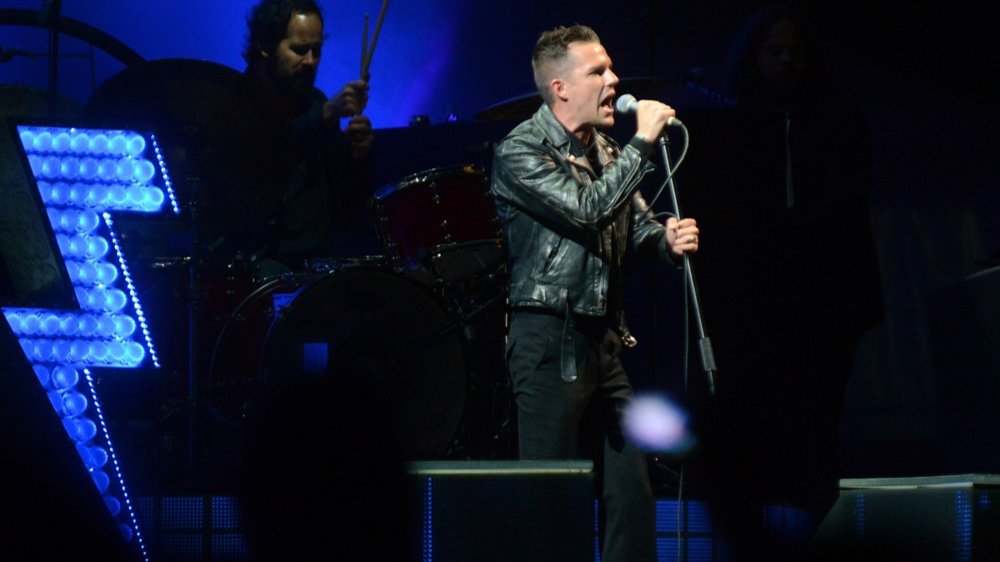“This guy is Russian, are you okay with Russians?” Brandon Flowers, the lead singer of The Killers, asked fans at a now notorious concert in the Georgian city of Batumi last Tuesday as he invited an amateur drummer from the crowd to join the band on stage.
The 20,000 people packed into Georgia’s biggest concert venue, however, quickly made it clear that they were far from “okay” with a Russian being invited onto the stage.
Sensing the mood of the audience sour, Flowers urged the crowd not to let borders divide them and reminded them that they were all brothers and sisters. These comments only added fuel to the fire, however, and the crowd began to boo. Around 500 people reportedly walked out of the venue and many more subsequently took to social media to express their anger.
As one Georgian fan wrote on Facebook afterwards: “No, we don’t want Russians on stage in Georgia. No, we are not brothers and sisters.”, one of many similar reactions.
The Killers reacted quickly and apologised profusely for what they said had been a misunderstanding. “We recognise that a comment, meant to suggest that all of The Killers’ audience and fans are ‘brothers and sisters’, could be misconstrued. We did not mean to upset anyone and we apologise. We stand with you and hope to return soon.”
Many of the group’s Georgian fans felt that the apology was insufficient and continued to demand a more concrete statement of political support given that Russian troops last invaded Georgia just 15 years ago, while two breakaway regions, Abkhazia and South Ossetia, both of which are legally part of Georgia, have been supported and armed by Moscow since the early 1990s.
“The Killers please say or write ‘Russia is an Occupier’ … and we will love you again!!!” wrote one frustrated fan.
Why exactly did this incident cause such outrage? Popular Georgian TV host Misha Mshvildadze puts it down to much of the local population being unsure how they should feel about the estimated 100,000 Russians who have relocated to Georgia in the past year and a half, an enormous demographic change given Georgia’s total population of just 3.7 million.
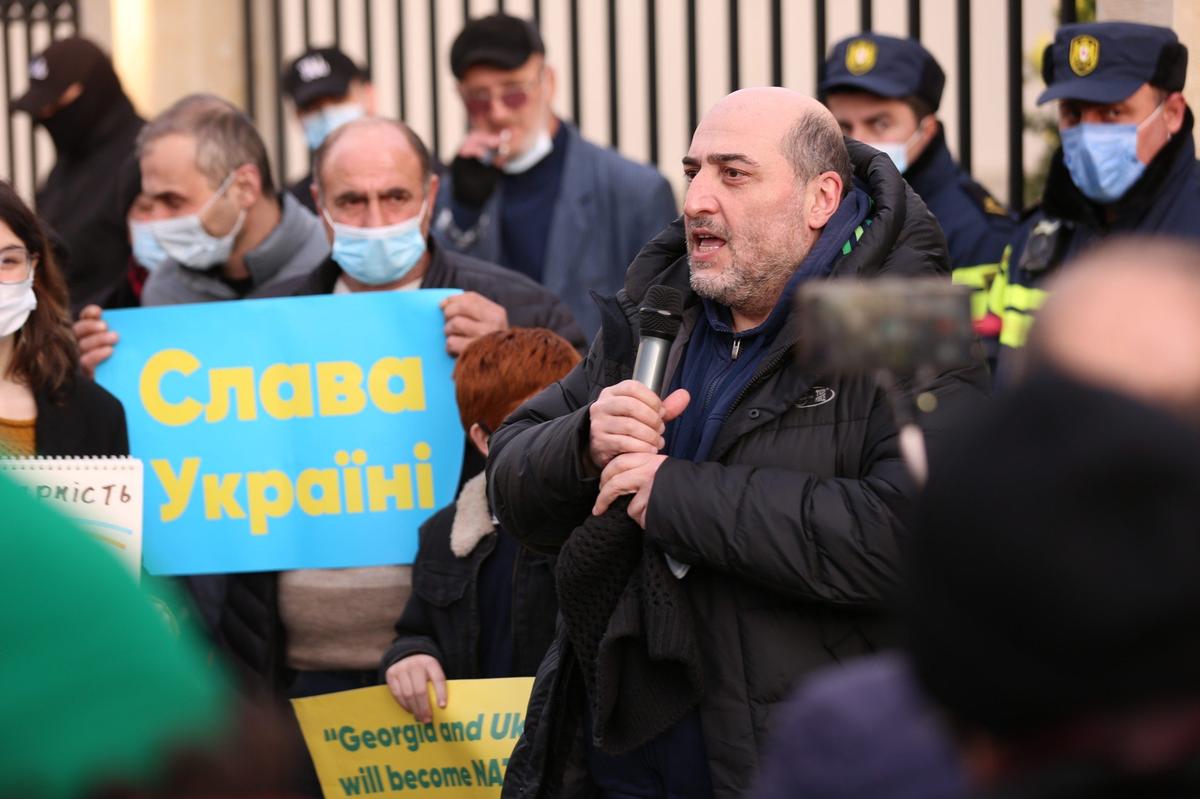
Misha Mshvildadze. Photo: social media
“Georgian society itself was confused,” Mshvildadze says, “we didn’t really understand whether these people were fleeing the war or economic problems, whether they shared their government’s policy on the war or were critical of it. We didn’t know whether we should pity them or hate them.”
“There’s a saying — make yourself at home, but don’t forget that you’re a guest,” Mshvildadze says, advice that has clearly been ignored by some new arrivals in the country.
“Some things immediately provoke backlash, such as the time in Kakheti when someone flew a Russian flag. When Russian pop music is played loudly in a cafe. When a Russian cruise ship arrives in Batumi … or when direct flights from Russia were reintroduced,” he says, referring to a recent decision by Russia to allow the recommencement of direct air links between Moscow and Tbilisi.
“On top of that, people in Georgia are genuinely afraid that their own government is leading them onto the side of Russia. The events in Batumi really only spiralled after Flowers insisted that Georgians and Russians were brothers, Mshvildadze maintains, adding “why would he say that in the first place?" The headline-grabbing incident and the band’s subsequent apology did at least do some good, in Mshvildadze’s opinion. “Everyone now knows how we react to attempts to foist brotherhood with the Russians on us”.
Love for Rachmaninoff
On the other side of the country a far more nuanced approach towards Russians and Russian culture can be observed in the curation of this year’s Tsinandali Festival, the most prestigious classical music event in the Caucasus, which starts next week in the refined atmosphere of the Chavchavadze Estate in Kakheti. This year, to mark the 150th anniversary of his birth, an entire day is devoted to the work of Russian composer Sergei Rachmaninoff.
Perhaps surprisingly given the current political climate, Russian pianist Alexander Malofeev will be among those performing.
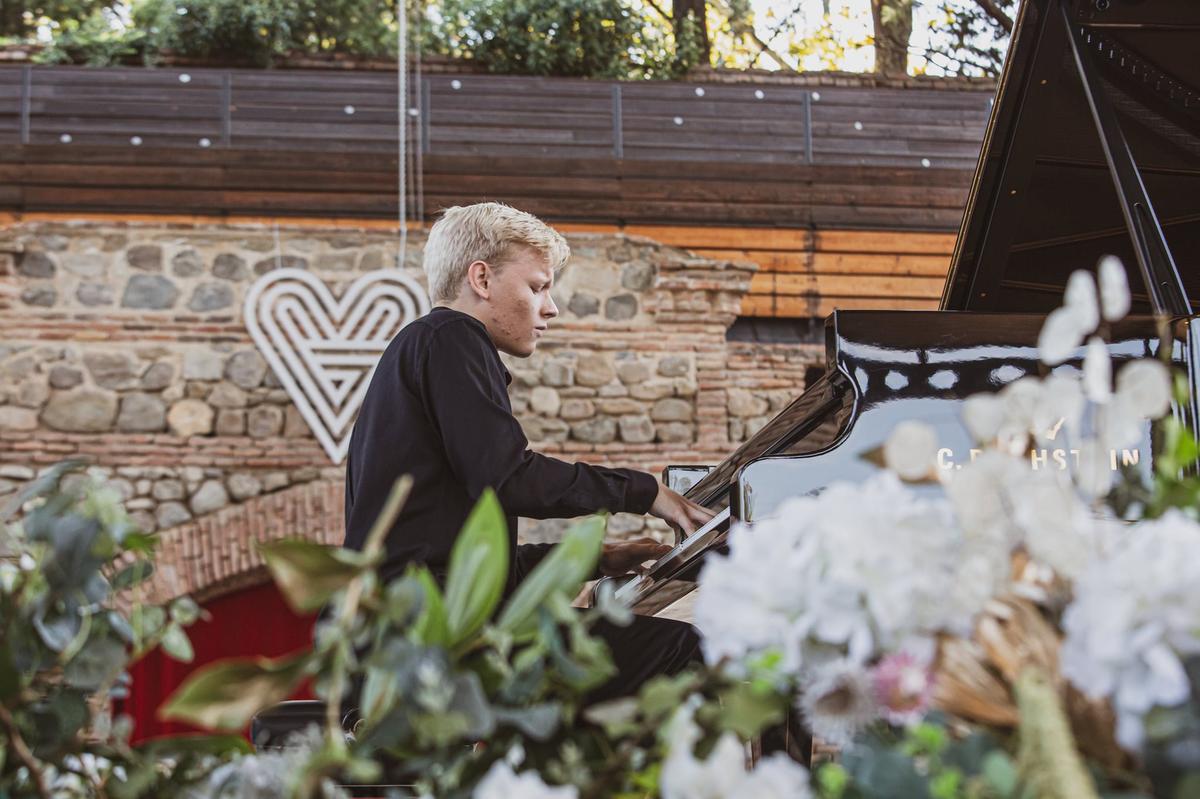
Alexander Malofeev. Photo: social media
“Obviously, the musicians don’t put Rachmaninoff into any political context, they simply treat him as a genius composer,” says festival director David Sakvarelidze, “It would be a crime not to play his music."
Last year, the festival opened under the baton of Ukrainian conductor Oksana Lyniv. Vasily Petrenko, the music director at the Royal Philharmonic Orchestra in the UK, took part in the festival earlier. Petrenko was born in Saint Petersburg, but as the war in Ukraine started, he declared that he was not going to work in Russia anymore, and labelled Russia’s invasion “one of the greatest moral failures of our century”.
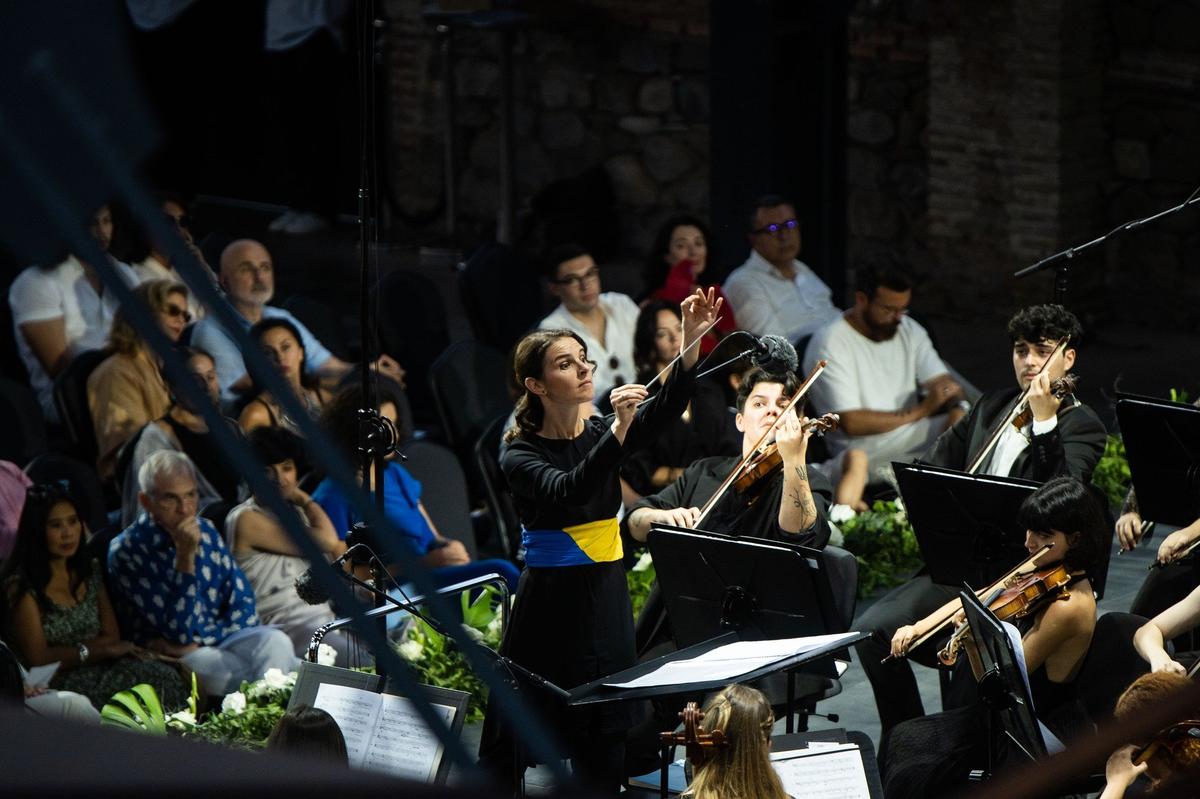
Oksana Lyniv. Photo: social media
Nonetheless, Sakvarelidze admits there are some Russian musicians the festival would not invite to play. These include some of Russia’s top classical musicians who publicly come out in support of the war.
“There are people in Russia these days who side with the truth. Those are my friends.”
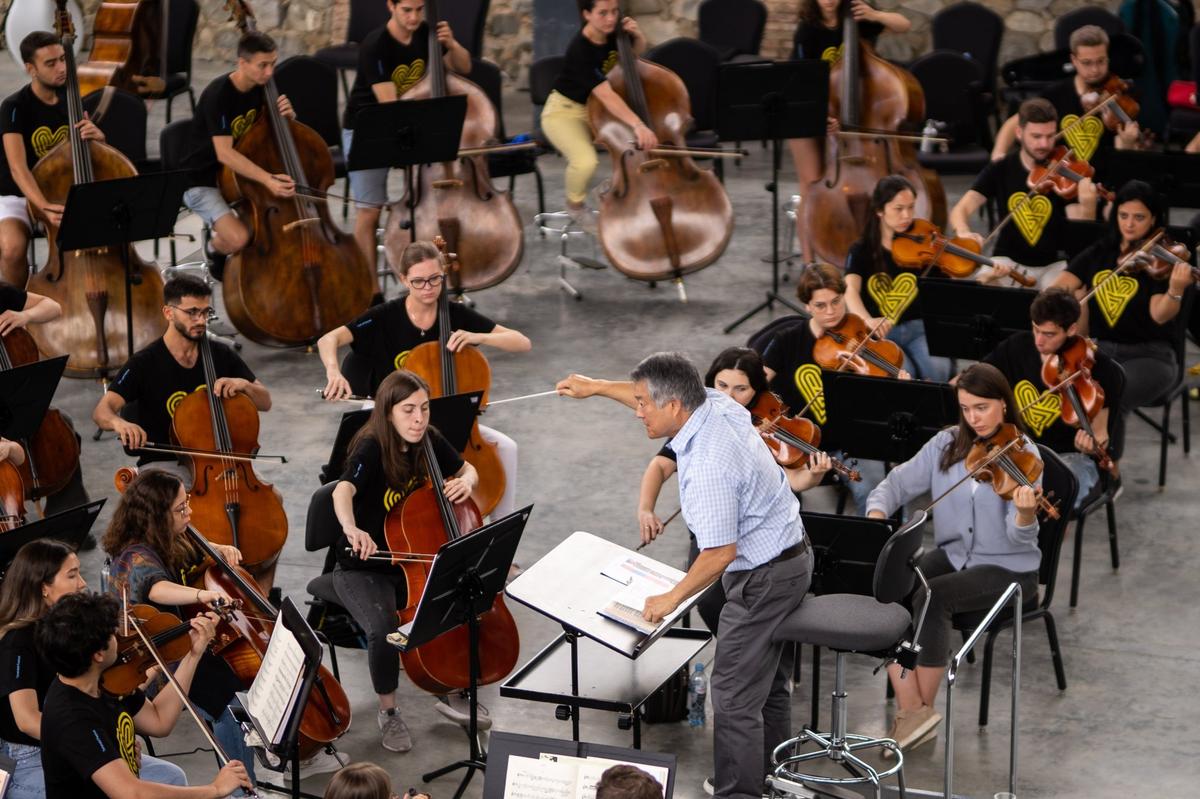
The festival’s youth orchestra. Photo: social media
The festival’s youth orchestra includes musicians from Ukraine, Armenia, Azerbaijan, Kazakhstan, and Turkey. “When we set up our festival five years ago, we believed the orchestra would have Russian musicians, too. But now there is only one Russian national, a cello player based in Germany,” Sakvarelidze continues.
“I believe that if a musician plays here, they must respect Georgia’s independence. My country is under occupation, and our visitors must be aware of that, whether they’re from Russia, Bulgaria, Vietnam, or if they are The Killers from the US.”
Join us in rebuilding Novaya Gazeta Europe
The Russian government has banned independent media. We were forced to leave our country in order to keep doing our job, telling our readers about what is going on Russia, Ukraine and Europe.
We will continue fighting against warfare and dictatorship. We believe that freedom of speech is the most efficient antidote against tyranny. Support us financially to help us fight for peace and freedom.
By clicking the Support button, you agree to the processing of your personal data.
To cancel a regular donation, please write to [email protected]
